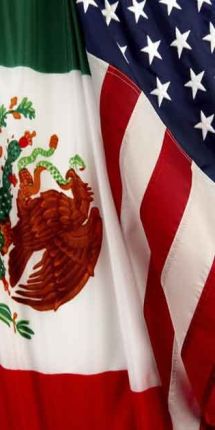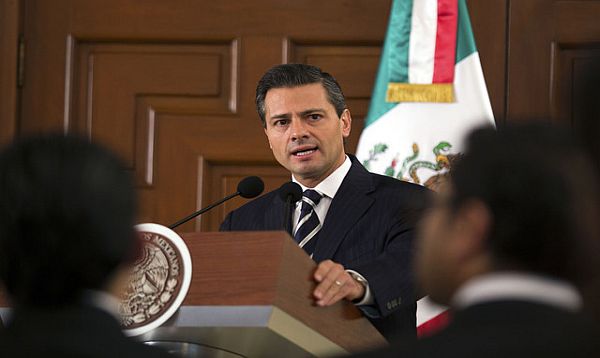Mexico City - Mexicans are puzzled looking at the political crisis in the United States, if only because for a long time we have been lectured from up north about the importance of getting our act together to become governable.
But now, unusually, Mexico's main political parties are cooperating to solve pressing national problems. Perhaps the US has something to learn from them.
Hollywood often uses the term "Mexican standoff" to describe a confrontation among mutually hostile participants armed with guns, where there is no safe way for any party to either kill the other or safely withdraw.
Maybe we will need to rephrase that and call it a "Washington standoff." During 2013, the United States has undergone a budget sequestration, government shutdown, and a near-breach of its debt ceiling. Political gridlock and ideological extremism have turned the stand off into a chronic condition.
Enter the "Pact for Mexico." President Enrique Peña Nieto's surprising political grand bargain has allowed Mexico's three largest political parties to pass several significant, long-needed reforms. These include laws to bring greater accountability to education and more competition to the economy and telecommunications.
 |
In the past, such reforms would have been as difficult for a Mexican Congress to approve as for the US Congress to agree on changes to Social Security or Medicare. Lawmakers here just haven't been able to touch the teachers union, for instance, just as American politicians haven't dared lay a finger on the "third rail" of entitlements. You can see why President Obama, so embattled over the years, admires the political consensus-building in Mexico, pointing out in his May visit that the parties are competing vigorously while still forging compromise.
Now President Peña Nieto wants to tackle further reforms under the pact, to be completed by the end of the year. He expects to pass fiscal reform including provisions to tax the rich with support from the left (the PRD, or Party of the Democratic Revolution). He counts on passage of political reform that includes runoff voting in the presidential election and consecutive re-election for lawmakers, with the vote of the right (the PAN, or National Action Party). His proposal for energy reform has not been fully spelled out, but the idea is to allow private investment in Mexico's state-owned oil giant, PEMEX.
What are the incentives for these political parties to work together? Some of it comes from political self-interest. Mr. Peña Nieto's PRI, or Institutional Revolutionary Party, does not have a majority in Congress, and needs support from elsewhere to pass legislation. It also has no ideology but is fiercely pragmatic, which allowed it to hold the presidency for more than 70 years, until 2000.
The conservative PAN held the presidency from 2000 to 2012 and wants to come back in 2018 with proof of its usefulness to the nation. And on the left, the PRD, which has governed Mexico City for the last 16 years, says it wants to work in harmony with others to dispel its image as a naysayer and to appear worthy of governing Mexico. Some of these calculations could apply to the United States.
The Pact for Mexico is also in sync with the "Mexican moment" – the notion that our country boasts solid foundations for future growth and social progress, which will transform it into a developed nation within a few years. This puts the good of the nation ahead of partisanship – another potential lesson for the US.
Read more at csmonitor.com


